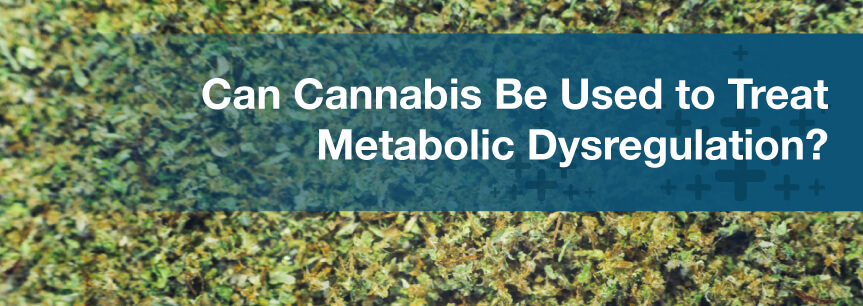
Both type 1 and type 2 diabetes affect your metabolism. Insulin acts as an essential part of your metabolism. Since the two types of diabetes alter the way insulin works in your body, they change vital steps in metabolizing food. Diabetes medication can help regulate your metabolism by correcting these insulin changes, but they also have risky side effects. More and more patients are using medical marijuana as an alternative treatment to avoid these drawbacks.
The pancreas produces insulin as a part of the metabolism, which lets glucose enter your cells so they receive nutrition. When you have diabetes, your insulin levels or effectiveness are decreased. Consequently, you can’t metabolize glucose properly, leading to a dysregulated metabolism.
Type 1 diabetes happens when the pancreas doesn’t create enough insulin for your body to function properly. The lack of insulin prevents your cells from taking in glucose — so, where does the glucose go? Instead of transporting to your cells, it goes into your blood. The excess glucose results in high blood sugar levels, damaging your body and causing uncomfortable symptoms.
When you have type 2 diabetes, your cells build a resistance to insulin, preventing your cells from taking in glucose even where you have enough insulin. To make up for a perceived lack of insulin, the pancreas produces even more of the hormone. When they get exposed to more insulin, the cells become even more resistant. Before the extra insulin arrives to aid the process, the glucose stays in the blood, leading to high blood sugar levels.
To get their metabolisms working properly, people with diabetes follow a variety of strategies. They need to maintain both insulin and blood sugar levels to stay in top shape. People with type 1 diabetes mainly take in extra insulin from an injection or pump to keep their insulin levels up. Meanwhile, people with type 2 diabetes’ treatment approaches depend on the nature of their diabetes. They may need extra insulin or have to reduce glucose production.
Both insulin treatment and diabetes medication can cause dangerous side effects. Insulin can give you low blood sugar, which can result in symptoms like fainting, seizures and rapid heartbeat. Certain diabetes drugs have side effects like kidney issues, liver disease, digestive issues and fatigue.
Marijuana has components called cannabinoids we study for their medical properties, and two of them — THCV and CBD — have shown potential as diabetic treatments. They can act like typical diabetes medications without the risks. While they can’t change insulin levels, they can help your metabolism recover from diabetic symptoms.
THCV is a lesser-known cannabinoid that researchers and growers have taken an interest in. Studies indicate that it can reduce insulin resistance and glucose intolerance. These effects let your body use insulin and glucose properly. It could also improve pancreatic function and lower blood pressure.
CBD is one of the two most studied cannabinoids alongside THC. It has the potential to provide similar effects to THCV and treat other diabetes symptoms. When combined with THCV, it can help promote sensitivity to insulin and reduce blood sugar levels. It can also impact the immune response responsible for causing type 1 diabetes. Patients trying to modify their diets can take advantage of CBD’s appetite-suppressing traits.
Addressing your diabetes with cannabis medicine takes a team effort. Consult with a cannabis-positive physician to become qualified for medical marijuana. Then, you can purchase medicine from a marijuana dispensary.